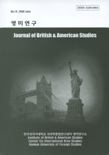Mark Twain, Race, and Huckleberry Finn
Mark Twain, Race, and Huckleberry Finn
- 한국외국어대학교 영미연구소
- 영미연구
- 제14집
-
2006.065 - 30 (26 pages)
- 61

Adventures of Huckleberry Finn explored the subject of racism through satire and irony. Twain originally developed this strategy when a direct expose of racism that he wrote was censored. The tendency on the part of some readers to conflate Huck’s perspective with Twain’s is aided and abetted by a peculiarly “double” aspect of Twain’s vision. Samuel Clemens/Mark Twain wrote the book at age 55, but he presented it as if it were written by a child―a child who resembled in some ways, the child Clemens himself once was. By the time he wrote Huck Finn, Sam Clemens had come to believe not only that Slavery was a horrendous wrong, but that white Americans owed black Americans some form of “reparations.” More and more, critics are suggesting that (1) Jim―not Huck―may well be the “hero” of the book; (2) Jim may don a minstrel mask strategically, when it seems to be in his self-interest to do so, and (3) critics’ failure to recognize Jim’s intelligence may reveal their own limitations rather than Twain’s. These assumptions suggest that Twain was doing more than challenging the ideology of black inferiority that dominated his world: he was consciously inverting it, crafting a book in which the most admirable and, perhaps, the most intelligent character, was black. Twain denies all subversive intentions in the novel but such a limited reading denies the corrosive satire of white pretensions to racial superiority that is at the books’s core. The final portion of Huckleberry Finn is increasingly coming to be understood as a satirical indictment of the virtual re-enslavement of free blacks in the South during the 1880s. Writing at a time when pseudo-scientific justifications for racism abounded, Mark Twain created a work of art which subverted the reigning racial hierarchy and spoke across time to generations that would continue to struggle with the challenge of extricating their country from the destructive legacies of Slavery. It is a book about how people who think of themselves as fine, upstanding, citizens can be coolly complicit in supporting an evil and indefensible status quo.
(0)
(0)